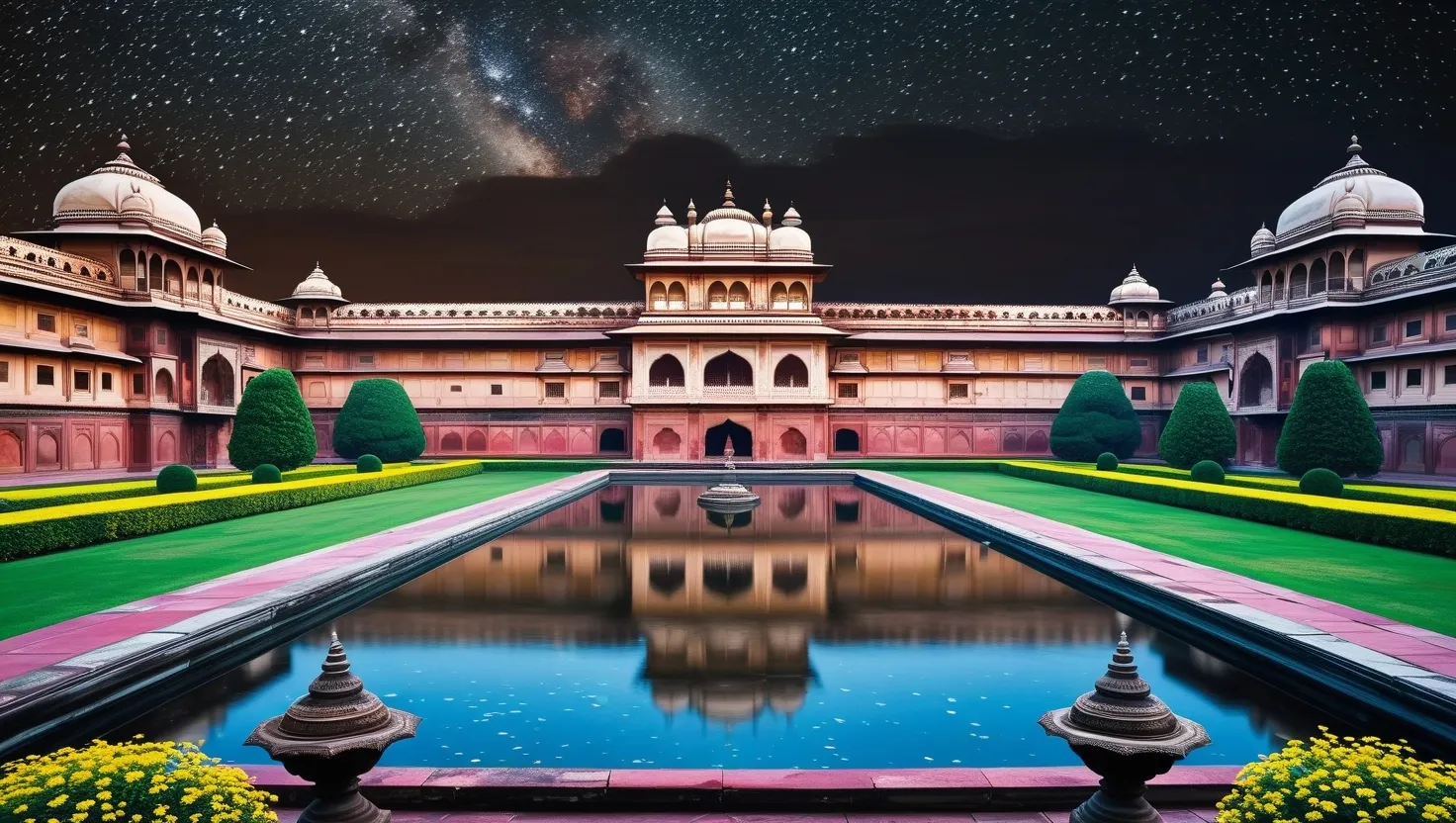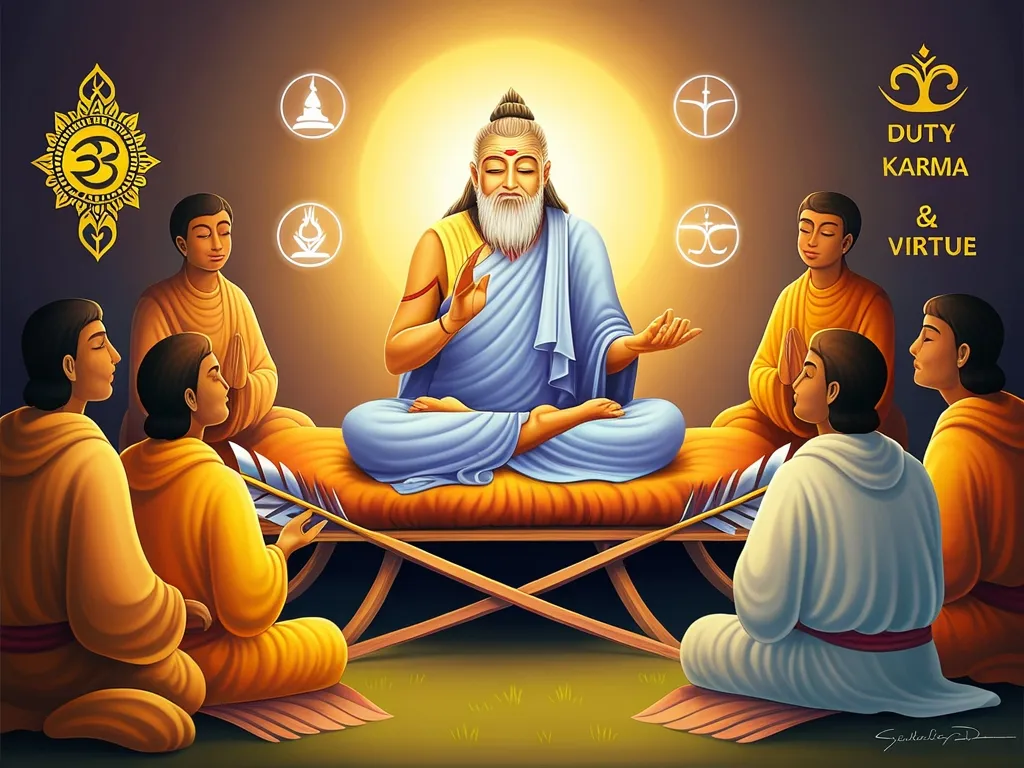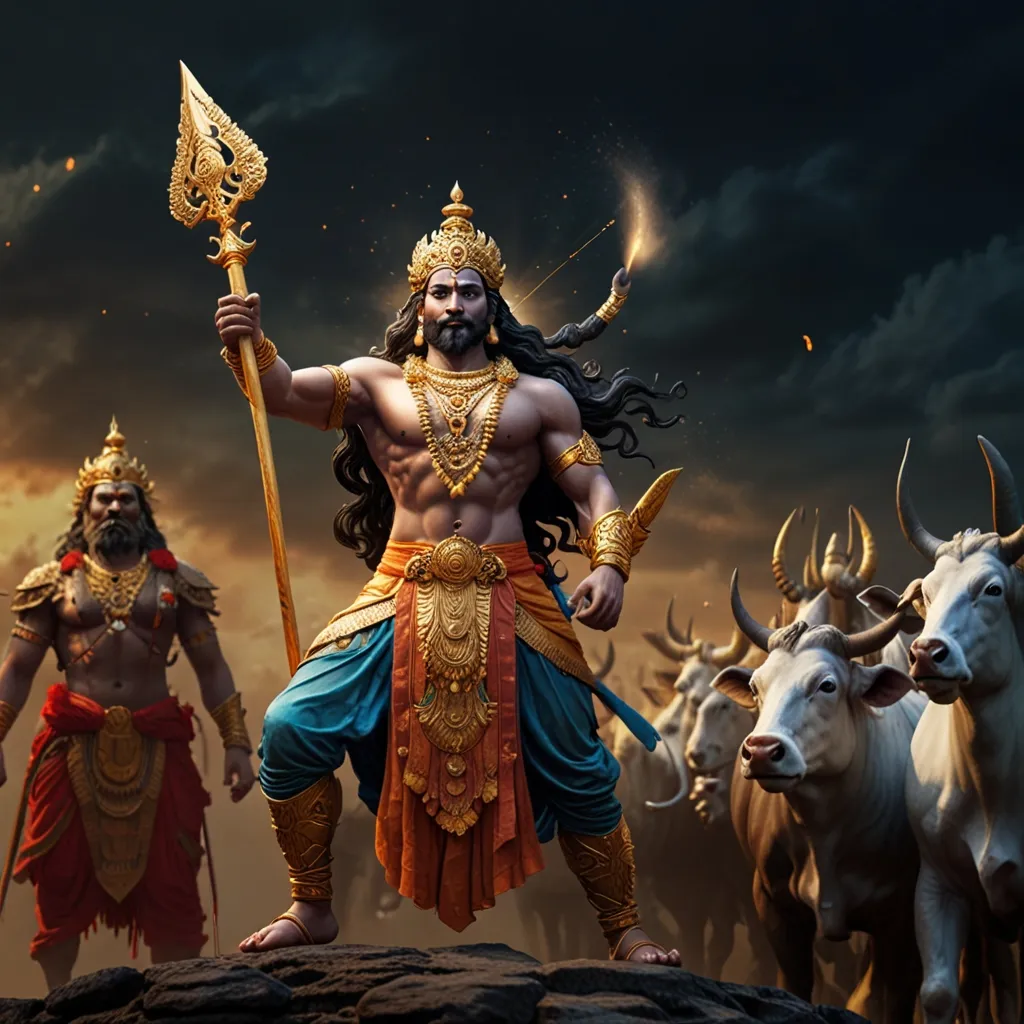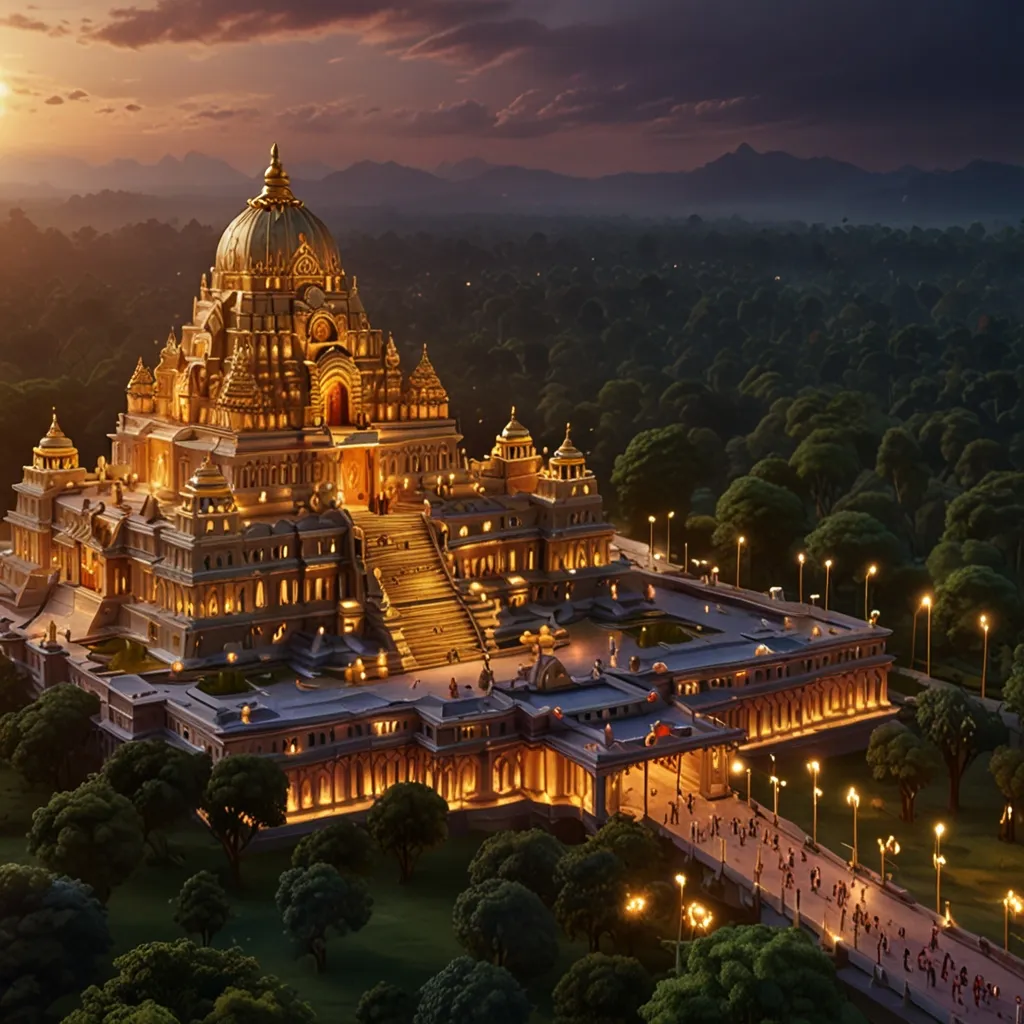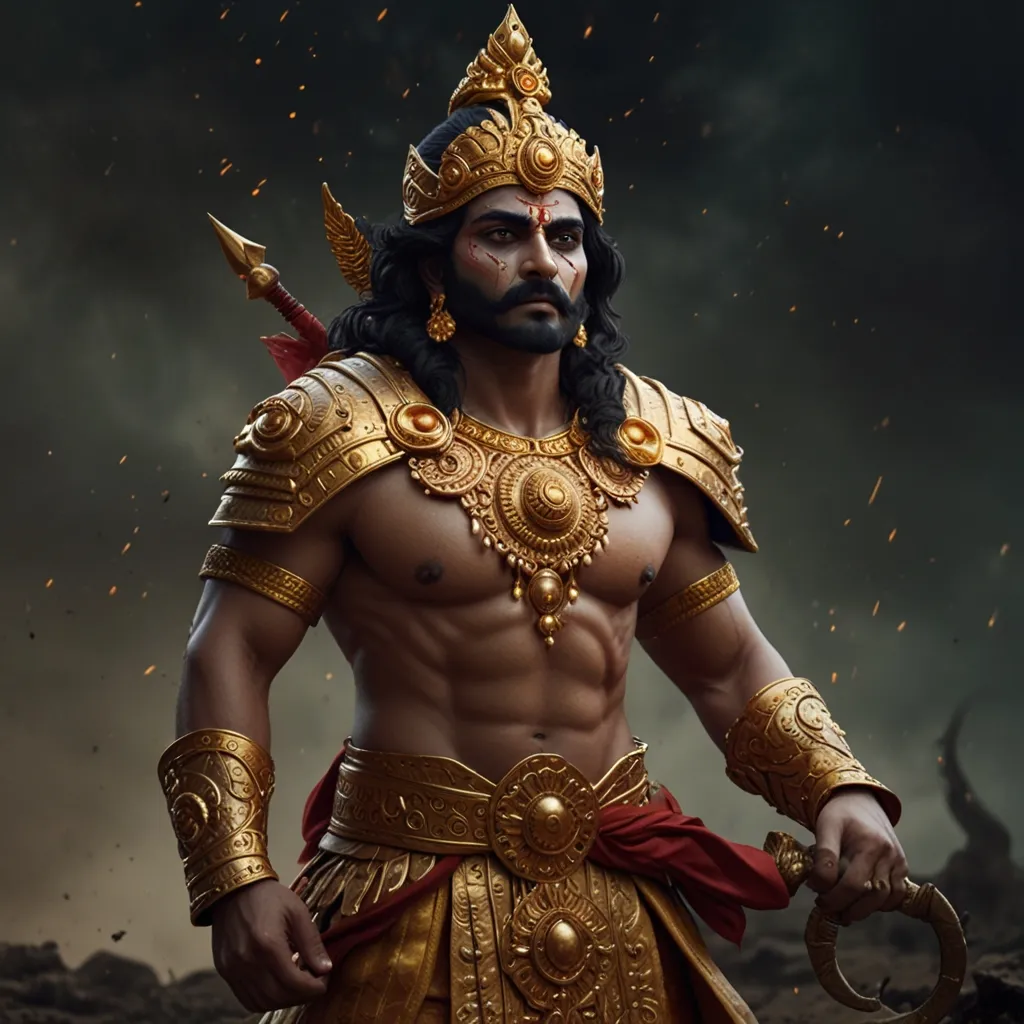In the vast and intricate landscape of the Mahabharata, one of the most compelling aspects is its profound exploration of statecraft. This ancient Indian epic is more than just a tale of heroes and villains; it is a rich tapestry of political strategy, diplomacy, and governance, offering insights that remain remarkably relevant in the modern era.
At the heart of the Mahabharata’s political narrative is Krishna, the divine diplomat and strategist. His role in attempting to negotiate peace between the Pandavas and the Kauravas is a masterclass in mediation and conflict resolution. Krishna’s efforts, though ultimately unsuccessful, highlight the crucial importance of skilled diplomacy in preventing wars and maintaining peace. As he once said, “The one who has controlled the mind and senses, and has realized the Self, is eligible to attain the state of supreme peace and liberation.”
Krishna’s counsel to Yudhishthira on the art of ruling justly is another significant aspect of the epic’s exploration of statecraft. Yudhishthira, the righteous king, is advised on the principles of good governance, including the protection of his people, the maintenance of law and order, and the promotion of the happiness of his subjects. These principles are timeless and universal, applicable to leaders across all eras.
However, the Mahabharata also delves into the darker side of leadership, particularly through the character of Dhritarashtra. His literal and metaphorical blindness to his sons’ misdeeds serves as a stark warning about the dangers of nepotism and unchecked power. Dhritarashtra’s failure to act against the injustices perpetrated by his sons, the Kauravas, ultimately leads to the downfall of his kingdom. This cautionary tale reminds us that leadership requires not only power but also wisdom and justice.
The assembly scene where Draupadi is humiliated is another pivotal moment in the epic’s exploration of statecraft. This incident highlights the importance of speaking truth to power and the potential consequences of remaining silent in the face of injustice. Draupadi’s plight raises questions about the role of citizens in holding their leaders accountable and the moral obligation to stand against injustice, even in the face of overwhelming odds.
Bhishma, the guardian of the throne, presents a complex figure whose role offers valuable lessons in loyalty, duty, and the challenges of balancing personal ethics with political necessity. Bhishma’s vow to serve the throne, regardless of who occupies it, is a testament to his unwavering loyalty. However, this loyalty is also a source of conflict, as he is torn between his duty to the throne and his personal sense of justice. This internal struggle serves as a reminder that leaders often face difficult choices and must navigate complex moral landscapes.
The Mahabharata’s concept of the “seven elements of the state” as described in the Shantiparva, further enriches our understanding of statecraft. These elements include the king, the council of ministers, the treasury, the military, allies, the kingdom, and the capital. Each of these components is crucial for the proper functioning of the state, much like the different limbs of the human body. As the Mahabharata suggests, “The king is the head, the ministers the eyes, the treasurer the mouth, the army the heart, the fort the hands, and the territory the feet.”
This organic theory of the state emphasizes the interconnectedness of its various components and the need for each to function harmoniously for the state to thrive. It also underscores the importance of the king’s role in maintaining this balance and ensuring that each element performs its designated duties.
The Mandala theory, another significant concept in ancient Indian statecraft, is also explored in the Mahabharata. This theory posits that the immediate neighbor of a state is likely to be an enemy, while the state next to the immediate neighbor is likely to be a friend. This dynamic circle of friends and foes, with the king and his state at the center, requires constant vigilance and strategic alliances to maintain power and stability.
As we reflect on these aspects of the Mahabharata, we are reminded that statecraft is not just about wielding power but about wisdom, justice, and foresight. The epic challenges us to think critically about leadership and governance, encouraging us to ask questions like: What are the responsibilities of a leader towards their people? How should a leader balance personal ethics with political necessity? And what are the consequences of poor leadership?
In the words of Bhishma, “A king should not hesitate to break any friendship or alliances that are later found to be disadvantageous.” This advice is as relevant today as it was in ancient times, highlighting the need for leaders to be adaptable and wise in their decision-making.
The Mahabharata’s exploration of statecraft is a rich and multifaceted one, offering lessons that transcend time and culture. As we navigate the complexities of modern politics, we would do well to remember the timeless principles of good governance, diplomacy, and leadership that this ancient epic so eloquently portrays. In the end, it is not just a story of ancient India but a guide for leaders everywhere, reminding us that true statecraft is about serving the people, upholding justice, and ensuring the happiness and well-being of all citizens.
